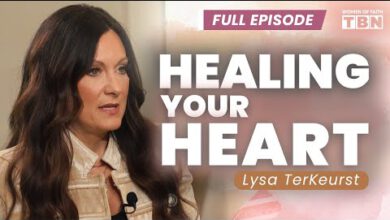God, This Is Not Fair
God, This Is Not Fair
There are moments in life when the weight of our struggles feels unbearable. I recently found myself in one of those moments—a raw, emotional space where I was asking God some incredibly hard questions. It all stemmed from the deep sense of unfairness I felt.
The person who broke our marriage—the one who walked away—seemed to be out there living his best life. From the outside, it looked like everything was perfect for him. Meanwhile, I was left at home, picking up the pieces of a broken family. The heaviness in my heart wasn’t just for me; it was for my kids. I had a front-row seat to their pain, seeing the ripple effects of his choices in their lives. It was heartbreaking.
I remember sitting on the beach, watching the tide roll in. The waves ebbed and flowed, creeping closer with each passing moment. I knew that if I didn’t move my chair and bag, everything I had would be soaked—or worse, washed away. But in that moment of despair, I didn’t care. I thought to myself, Fine, let it all wash out to sea. I felt overwhelmed by hopelessness and consumed by the bitter feeling of injustice.
Forgiveness felt impossible. I tried to forgive for the facts of what had happened, because I knew God commands us to forgive. But forgiveness isn’t just about the facts—it’s also about the impact. Trauma has two parts: the fact of what happened and the ongoing impact it leaves on our hearts. While we can forgive the facts in a moment, forgiving the impact is a much longer process.
That’s where bitterness kept creeping in—just like those waves on the beach. No matter how hard I tried to fight it, I felt stuck in the belief that things would never get better. The hurt seemed endless, and I couldn’t understand why God would allow it.
In moments like these, it’s important to acknowledge the honesty of our emotions. God welcomes our raw feelings, even when we’re wrestling with Him. We often hear well-meaning but overly simplistic phrases like, “Just trust God” or “Believe He has a plan.” While these statements hold truth, they can sometimes feel dismissive of the deep pain we carry.
The Bible itself teaches us that it’s okay to wrestle with God. Take the Psalms, for example. They’re not just chapters of poetry to read through quickly—they’re raw, real prayers from people like David, who struggled with feelings of abandonment, injustice, and fear.
David’s life story, woven through the Psalms, shows us that faith doesn’t always come with immediate resolution. He experienced seasons of waiting, feeling like God’s promises were delayed while his enemies thrived. David cried out in frustration and fear, yet he kept bringing his pain to God.
Here’s an important question to reflect on: What does it mean to God when we’ve been sinned against?
We often think of forgiveness as something we have to offer quickly, but God is deeply aware of the injustice we face. He sees our pain and walks with us through the process of healing. Holding on to hurt doesn’t mean we lack faith—it means we’re human, navigating a broken world with God’s help.
So, when you find yourself asking God hard questions, remember this: He invites your honesty. He’s not afraid of your doubts, your pain, or your feelings of unfairness. Bring it all to Him—He is faithful to meet you in your brokenness, just as He did with David. Healing is a process, and God is patient through every step.
Would you like further tweaks to this translation, or would you like me to craft a call-to-action for your audience on Red Católica?
